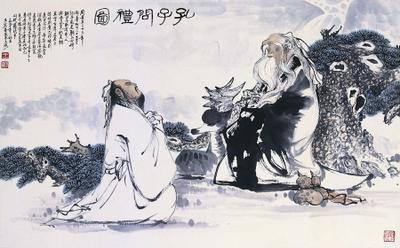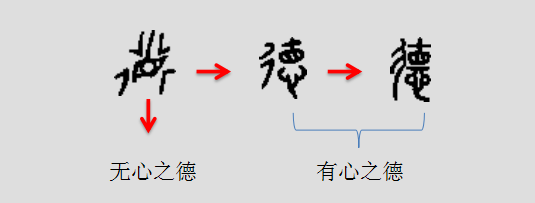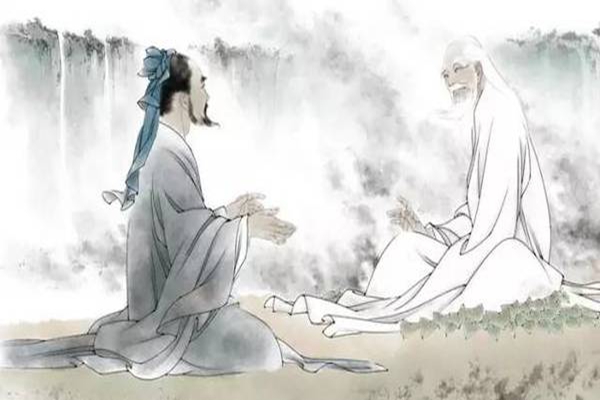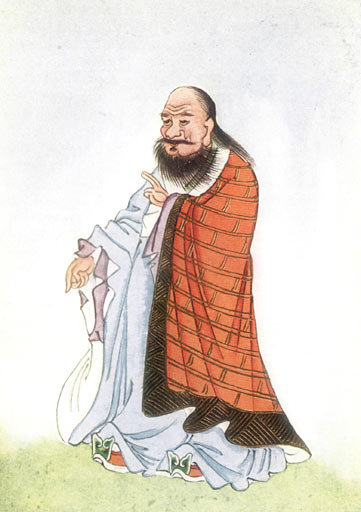
| 38 | 道德經: | 上德無為而無以為;下德為之而有以為。 上仁為之而無以為;上義為之而有以為。 上禮為之而莫之應,則攘臂而扔之。 故失道而後德,失德而後仁,失仁而後義,失義而後禮。 夫禮者,忠信之薄,而亂之首。前識者,道之華,而愚之始。 是以大丈夫處其厚,不居其薄;處其實,不居其華。 故去彼取此。  |
Dao De Jing:
|
(About the attributes of the Dao)

(Those who) possessed in the highest degree the attributes (of the Dao) did not (seek) to show them, and therefore they possessed them (in fullest measure).
(Those who) possessed in a lower degree those attributes (sought how) not to lose them, and therefore they did not possess them (in fullest measure).
(Those who) possessed in the highest degree those attributes did nothing (with a purpose), and had no need to do anything.
(Those who) possessed them in a lower degree were (always) doing, and had the need to be so doing.
(Those who) possessed the highest benevolence were (always seeking) to carry it out, and had no need to be doing so.
(Those who) possessed the highest righteousness were (always seeking) to carry it out, and had the need to be so doing.
(Those who) possessed the highest (sense of) propriety were (always seeking) to show it, and when men did not respond to it, they bared the arm and marched up to them.
Thus it was that when the Dao was lost, its attributes appeared; when its attributes were lost, benevolence appeared; when benevolence was lost, righteousness appeared; and when righteousness was lost, the proprieties appeared.
Now propriety is the attenuated form of leal-heartedness and good faith, and is also the commencement of disorder; swift apprehension is (only) a flower of the Dao, and is the beginning of stupidity.
Thus it is that the Great man abides by what is solid, and eschews what is flimsy; dwells with the fruit and not with the flower. It is thus that he puts away the one and makes the choice of the other.
|

老子和孔子的對話,流傳百世的千古智慧!

Dao De Jing Chapter 38 - Seddon
Dec 20 at 5:58 PM
38
The truly good man is unaware of his goodness,
And thus, is good.
The foolish man sets himself to be good,
And so is not good.
The truly good man takes no action,
Yet all things are accomplished.
The foolish man is forever taking action,
And much is left undone.
The truly benevolent man acts without
striving to satisfy personal ends;
Yet the seeker of morality acts with an ulterior motive.
And when the follower of rules takes action and no one responds,
He rolls up his shirt-sleeves to impose order by force.
Therefore, when Tao is lost, goodness remains.
When goodness is lost, benevolence remains.
When benevolence is lost, morality remains.
When morality is lost, rules remain.
Merely following rules is a pretence of trust and loyalty, and is the beginning of confusion.
To seek knowledge of the future is to hold to a false Tao, and is the beginning of folly.
Therefore the superior man holds to the real
And ignores mere appearances;
Takes the fruit and rejects the flower;
Accepts the first and discards the second.

No comments:
Post a Comment